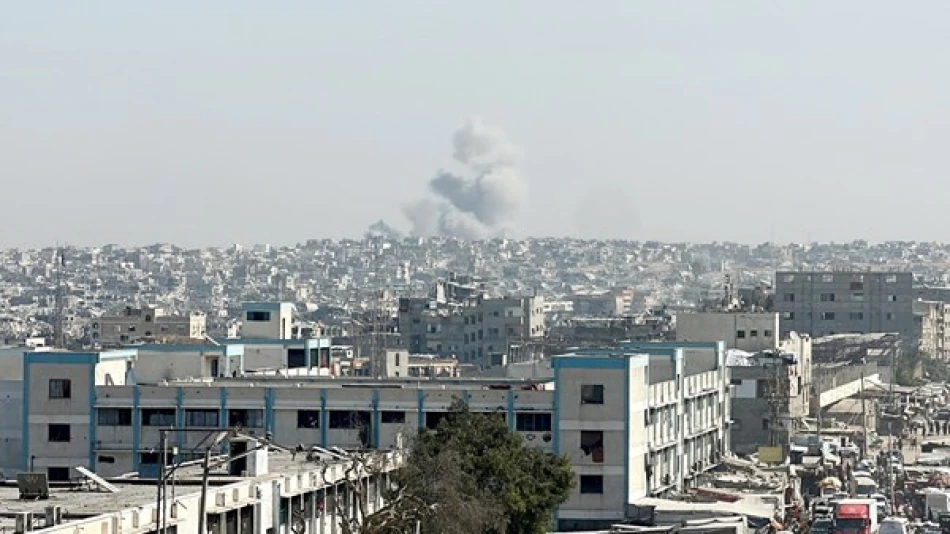
Intense Efforts to Prevent Collapse of Gaza Ceasefire
Arab mediators and the United States are working hard to keep the Gaza ceasefire intact after a day of heavy bombing killed 44 people, according to health authorities in the territory. The diplomatic push comes as tensions rise over alleged violations and conflicting accounts of what happened on the ground.
President Donald Trump confirmed the Gaza ceasefire remains in effect, but suggested Hamas leadership "might not have been involved" in the shooting that targeted Israeli forces in Rafah. When asked directly if the ceasefire still stands, Trump said "yes."
Trump pointed to possible internal divisions within Hamas, saying the group carried out some shootings but "maybe the leadership wasn't involved - perhaps some rebels within the movement." He warned that the situation would be handled "properly and firmly."
The president also issued a stark warning: the US might intervene directly or through Israel to disarm Hamas if the group doesn't stick to its commitment to give up weapons. But he made clear America won't deploy ground troops in the Palestinian territory.
Two key American envoys, Steve Witkoff and Jared Kushner, arrived in Israel yesterday ahead of Vice President JD Vance's visit. The high-level diplomatic activity shows how seriously Washington takes preventing the ceasefire from collapsing.
Israeli Prime Minister Benjamin Netanyahu met with the American envoys to discuss regional developments. According to Israeli newspaper Haaretz, the visit aims to prepare for Vance's arrival and discuss the next phase of America's regional plan.
Egypt's Foreign Minister Badr Abdel-Ati stressed the critical importance of both sides sticking to the Sharm el-Sheikh agreement during phone calls with his French and Danish counterparts. He said respecting the deal represents a basic step toward securing calm and ending the war permanently while reducing human suffering in Gaza.
The tensions started Sunday when Israel launched massive strikes on Gaza, claiming Hamas killed two Israeli soldiers in an attack. Hamas denied this. Netanyahu said Israeli forces dropped 153 tons of bombs on Gaza in response to what he called Hamas violations of the ceasefire.
Palestinian medical sources reported that Israeli forces killed two more Palestinians in the Shaaf area of the Tuffah neighborhood, east of Gaza City. This incident happened along the "Yellow Line" that marks where Israeli military forces are supposed to withdraw from main populated areas inside Gaza.
The Israeli military said its forces shot at gunmen who crossed the Yellow Line, calling them a threat. Israeli Defense Minister Israel Katz warned that any Hamas fighters remaining in areas still under Israeli control must leave immediately, saying anyone staying behind the Yellow Line will be targeted without warning.
Here's why this matters: the ceasefire deal represents months of painstaking negotiations involving multiple countries. If it falls apart, it could mean a return to full-scale conflict and derail broader peace efforts in the region. For now, all sides seem committed to keeping it alive, but the recent violence shows how fragile the agreement remains.
Most Viewed News

 Layla Al Mansoori
Layla Al Mansoori






